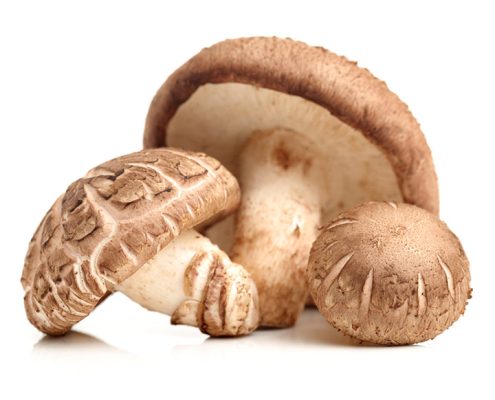Shiitake mushrooms, or Japanese Shiitake mushrooms (Lentinus edodes), is a type of edible fungus native to East Asia. It’s a type of fungus that has been used in traditional Chinese medicine for centuries to boost the immune system and improve brain health. A well-regulated immune system helps the body fight infections and prevent chronic inflammation that can contribute to cardiovascular disease, diabetes and other health issues. In recent years, there is some evidence that shiitake mushroom extract may help clear HPV infection, is it true? and how it worked. In this post, we will discuss it, please read on if you are interested.
What’s AHCC?
Before we get to this point, we should know the concept ”AHCC”, which is short for Active Hexose Correlated Compound, also known as AHCC, is a unique natural cultured mushroom extract derived from the mycelia of shiitake mushrooms. AHCC has been identified by scientists as having the highest immunostimulatory potency. It is produced using a patented enzymatic process that reduces its molecular weight and increases absorption.
It has been shown to improve immune function by optimizing the action of natural killer cells and increasing production of cytokines. AHCC may also help clear the human papillomavirus (HPV) infection that can lead to cervical cancer. A small study published in Frontiers in Oncology in 2022 found that women with persistent high-risk HPV who took AHCC for 6 months were more likely to clear their infection than those who took a placebo. The study also found that AHCC was well-tolerated and did not cause any serious side effects.
How Shiitake mushroom extract work for HPV Infection?
HPV is not just a sexually transmitted disease, it can also lead to cervical cancer. The key is an extract of mushrooms called AHCC (Active Hexose Correlated Compound). Although there are vaccines to prevent HPV infection, there are few effective treatments to clear persistent high-risk HPV infections. But now, a new study shows that an inexpensive over the counter supplement can clear up HPV in about a year by boosting the body’s immune system. But an extract of the Japanese mushroom shiitake appears to reduce the virus or even eradicate it in some women, according to a new study from the University of Texas Health Science Center at Houston Medical School.
In a pilot study of 10 women with persistent high-risk HPV, researchers at University of Texas Health Science Center at Houston McGovern Medical School found that daily AHCC supplementation for six months supported the host immune system in clearing HPV. Judith Smith and her colleagues were inspired to test the effect of AHCC on HPV by in vitro studies that showed it had anti-cancer, antiviral, and antioxidant properties. The results of the study found that AHCC helped clear HPV infection by increasing the number of cells known as natural killer (NK) and T lymphocytes. It also reduced the levels of an important protein in the immune system called interferon-beta, or IFN-b. Researchers gave 10 HPV-positive women AHCC, also known as active hexose correlated compound, daily for six months. Five women achieved a negative HPV test result, including three who became permanently HPV-negative. Specifically, the polysaccharides in AHCC stimulate specific receptors that help the body recognize invading pathogens like viruses and bacteria. It has also been shown to improve the quality of immune cells.
In addition to being rich in immune-boosting b-glucans, AHCC also supports healthy liver and digestive function by inhibiting oxidative stress. Oxidative stress is caused by free radicals that can damage your cells and lead to a variety of health complaints. Various lab-based studies show that AHCC contains powerful antioxidant properties, which may neutralize these free radicals. In the study, 50 women over 30 years old with persistent HPV infections that lasted more than two years were randomized to take 3g of AHCC daily on an empty stomach for 6 months or placebo. They were tested every three months with HPV DNA and RNA as well as a blood sample for immune markers, including interferon-alpha (INN), interferon-beta, interferon-gamma, IgG1, T lymphocytes, and natural killer (NK) cells. Those taking AHCC saw significantly improved immune response rates and durable clearance of HPV infection.
However, it is important to note that AHCC is not a cure for HPV. It is only one of several factors that can help the body clear the infection. Other factors that can help include a healthy lifestyle, a strong immune system, and vaccination against HPV. If you are concerned about HPV infection, talk to your doctor. They can help you determine if AHCC is right for you and can provide you with more information about the risks and benefits of this supplement.
- Dandelion Extract: What It Is, Benefits, Uses and Side Effect - April 23, 2024
- Is Berberine Extract Help For Weight Loss? - April 11, 2024
- Why Is Pysllium Husk Powder A Popular Meal Replacement Ingredient? - April 3, 2024




